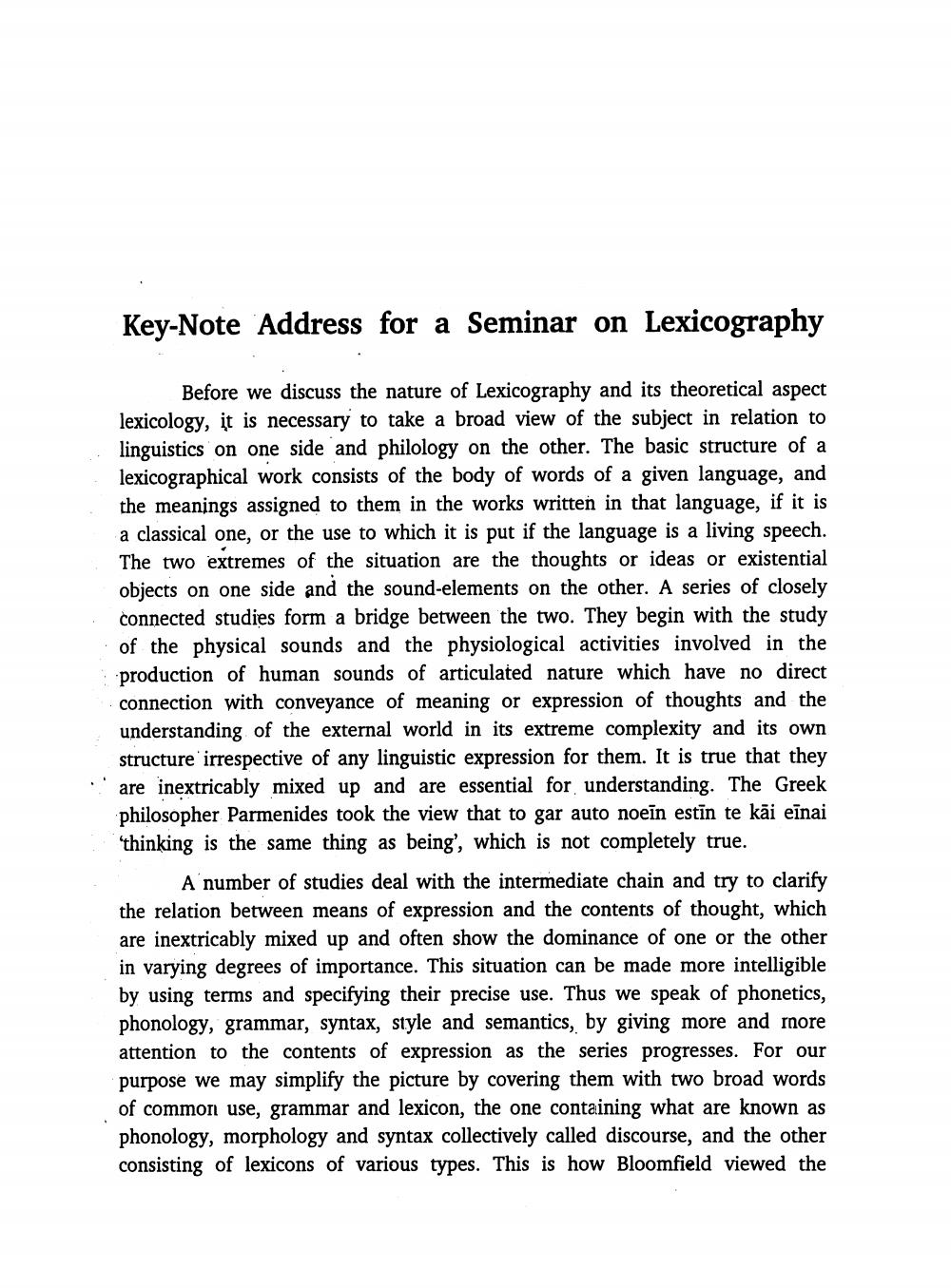________________
Key-Note Address for a Seminar on Lexicography
Before we discuss the nature of Lexicography and its theoretical aspect lexicology, it is necessary to take a broad view of the subject in relation to linguistics on one side and philology on the other. The basic structure of a lexicographical work consists of the body of words of a given language, and the meanings assigned to them in the works written in that language, if it is a classical one, or the use to which it is put if the language is a living speech. The two extremes of the situation are the thoughts or ideas or existential objects on one side and the sound-elements on the other. A series of closely connected studies form a bridge between the two. They begin with the study of the physical sounds and the physiological activities involved in the production of human sounds of articulated nature which have no direct connection with conveyance of meaning or expression of thoughts and the understanding of the external world in its extreme complexity and its own structure irrespective of any linguistic expression for them. It is true that they are inextricably mixed up and are essential for understanding. The Greek philosopher Parmenides took the view that to gar auto noeīn estīn te kāi einai thinking is the same thing as being', which is not completely true.
A number of studies deal with the intermediate chain and try to clarify the relation between means of expression and the contents of thought, which are inextricably mixed up and often show the dominance of one or the other in varying degrees of importance. This situation can be made more intelligible by using terms and specifying their precise use. Thus we speak of phonetics, phonology, grammar, syntax, style and semantics, by giving more and more attention to the contents of expression as the series progresses. For our purpose we may simplify the picture by covering them with two broad words of common use, grammar and lexicon, the one containing what are known as phonology, morphology and syntax collectively called discourse, and the other consisting of lexicons of various types. This is how Bloomfield viewed the




